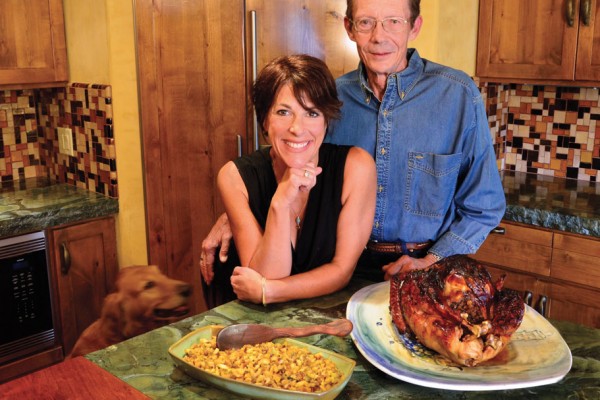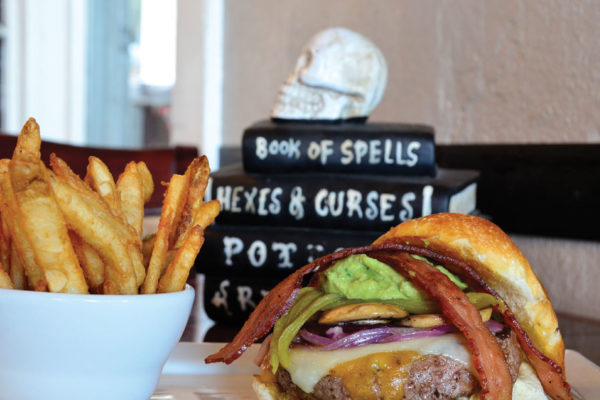Continued (page 3 of 5)
Leighton Meester
Leighton Meester might be best known for her role as Blair Waldorf on Gossip Girl, the CW television series about Upper East Side socialites that ran for six seasons, but she’s clearly ready to shed that role and prove her acting prowess. Last spring, she received stellar reviews for her performance as Curley’s wife in the Broadway production of John Steinbeck’s Of Mice and Men (National Theatre Live’s presentation of the show will be screened at Yavapai College Performing Arts Center in Prescott on Jan. 4 at 3 p.m.). In Like Sunday, Like Rain, which co-stars Debra Messing (Will & Grace) and Billie Joe Armstrong (the frontman of Green Day), Meester plays Eleanor, a young woman who’s estranged from her family and has just been fired from her waitressing job. She finds work as a nanny for a 12-year-old cello prodigy. Over the course of several months, that friendship will change both of their lives.
Sedona Monthly: Like Sunday, Like Rain is a beautiful film. What drew you to the script and the character of Eleanor?
Leighton Meester: I originally got the script when I was living in New York. I thought it read like a song. It’s rhythmic and it sneaks up on you – the themes, the character, the dialogue, the scenes, the story. It stays with you the more you watch it, and it changes its meaning. I had a meeting to talk about the script and the character with Frank [Whaley, writer and director] for hours. Usually those things don’t last so long. We ordered meals and talked, and I got a sense of who he was as a person and what he was looking for in the film. I ended up loving him as well. He understood that I cared for Eleanor. I could see her struggle and vulnerability but also her strength and her fire.
You also acted in 2010’s Country Strong, and last month you released your first album, Heartstrings. Are you drawn to roles about musicians because of your own love of music?
I think music is a lovely tool for writers to be able to use to present the emotional center of a character. For Eleanor, she’s a musician who was stifled, and her fire was extinguished because of her family and her own insecurities. It’s like a lot of people: Whether or not you’re good at music or have the courage or the talent, all of these things don’t matter when you’re trying to make ends meet and you’re struggling. Even if you get into Juilliard, it doesn’t mean you can go. Music gets written off as frivolous or useless. I think it’s a metaphor for a character’s emotional arc and how they express themselves versus how they have to deal with the real world.
You sing, but do you play an instrument?
I play guitar. That’s my songwriting tool. I did have to learn a bit of the coronet for Like Sunday, Like Rain, though I can’t say I’m very good at it. I think it takes years of practice or some sort of natural knack, which I didn’t seem to have. Under the constraints of the film and the timing, it was difficult to master an instrument. I give it to anyone who can play it. It’s very difficult.
You played Blair Waldorf on Gossip Girl for six seasons, and Blair and Eleanor couldn’t be more opposite. Were you able to relate to them both?
I really love Eleanor. I think she’s like me and so many other women, whether you’re just starting out and finding your feet and you’re 21 or you’re my age and have had a lot more experience as an adult. She’s tough and has a real sense of humor, but she’s at a crossroads that I can relate to in life where she’s choosing something better. I like that’s she’s put into this different world with someone she can’t believe she can relate to because he’s fairly quirky and odd and has a totally different background then she does. But he saves her. And I think that’s really special.
In the movie you play opposite Julian Shatkin, who plays Reggie, a cello prodigy. What was it like working with someone so young in such an unflinching role?
He’s everything. He’s funny and intelligent and emotionally present and responsible and mature. At the same time, he’s raw and young and open and has the nonjudgmental, fresh outlook that only someone that age can have. I knew when I read the script and talked to Frank, it would be a feat to find someone who could really capture that role. It would also have to be a very true 12-year-old. Julian really was that age, and he had the emotional intelligence to capture that role. Frank actually sent me to Julian’s audition, which I felt privileged to see. Already I was emotionally captured by the script as a whole, and then I watched his tape, and I was crying. I watched it two or three times, and it brought tears to my eyes, and not even in the saddest moments. It was the façade of happiness he puts on throughout, the façade of a 12-year-old who’s forced to be an adult and be alone. Working with him, I learned more than with a number of adults I’ve worked with. There’s something so special about him – I can’t quite describe it eloquently enough.
Can you compare and contrast working on an independent film with working on a blockbuster movie?
Usually the desire to do a film that’s small, like this one, comes from the material and the character and the people who are part of it. That’s the drive. It’s a good reason to work – it’s the best reason. If you could always work like that, it would be awesome [laughs]. You do it because you love it, not for the money or because you know it’s going to be a huge success financially.
What’s the last movie you watched?
Last night I watched Listen Up Philip, which I liked a lot.



